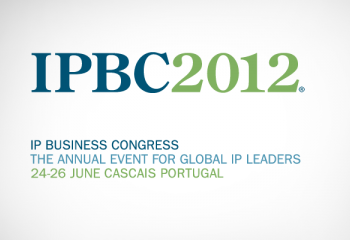
Insights
IPBC Recap: The business case for IP
July 10, 2012

July 10, 2012
I sat on a panel about IP transaction trends in Europe at the recent IP Business Congress (IPBC 2012). In the subsequent Q&A session, I was asked about the need for more IP awareness education in the C-suite. As patents increasingly become top-of-mind for business executives, how can we ensure that these issues are clearly understood by non-IP stakeholders?
This is a question I spend a lot of time thinking about. First, some context. Forty years ago, less than 20% of an S&P 500 company’s market value was represented by intangible assets (Source). In those days, business leaders left the management of IP to either the IP department or the legal department. Today, that intangible figure has grown to 80%. The increased size and publicity of patent transactions (e.g., Nortel) is making executives, boards of directors, and shareholders more attuned to the potential value of their IP. Furthermore, high-profile patent disputes are making them acutely aware of the risks. What fascinates me is how, despite the increased strategic importance and value of intellectual assets, business leaders still tend to delegate the management of these assets to an non-commercial IP department.
So when I was asked the question about IP education for the C-suite, I looked around the room. I observed that the typical delegate had an average of 20 years IP experience and training. It is fanciful to think that we could ever “train” CxOs to understand the intricacies of the IP business.
CxOs have many complicated issues on their plates and we can’t expect C-level executives to dedicate their time to learning the finer points of patent law or the inner-workings of complex licensing transactions. Instead we need to make it easier for them. We need to speak their language. So the question is really “how can IP professionals communicate their trade to an audience that doesn’t have 20 years of IP experience?”
This year’s IPBC carries on a theme that has been evolving since IPBC 2008 in Amsterdam. Delegates are no longer campaigning for the appointment of a CIPO (Chief Intellectual Property Officer) or equivalent position. There is an acceptance that intellectual assets are being discussed in mainstream business settings. The question is moving from the “What” of IP to the “How” of maximizing returns to business from intangible assets. And that’s the question we’re focused on answering at Intellectual Ventures: How can we enable firms to navigate the complicated world of making the most of intangible assets for direct, measurable business benefit?